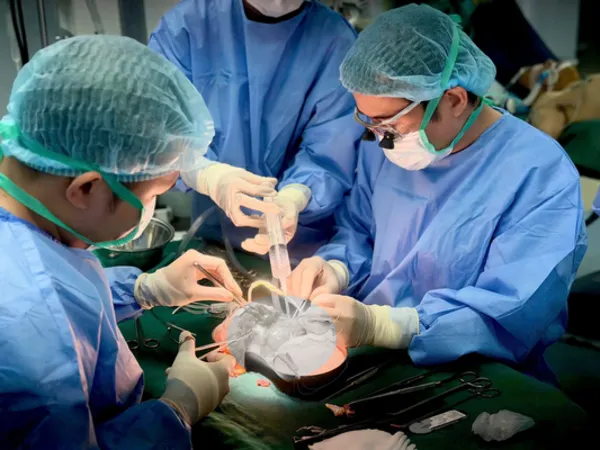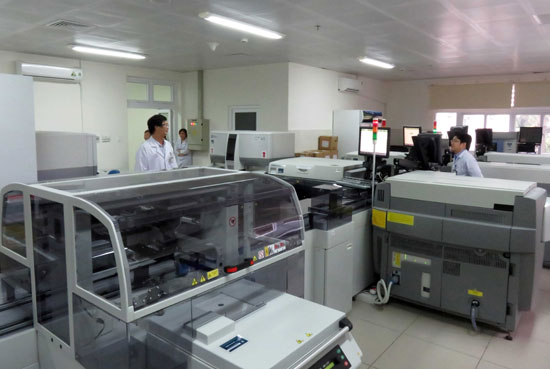 Society
Society


|
| The medical laboratory at Chợ Rẫy Hospital in HCM City. — VNA/VNS Photo Phương Vy |
HCM CITY — Hospitals need to help with quality assessment of medical laboratories to facilitate their accreditation, a requirement for mutual recognition of results by hospitals, health officials have said.
It is not uncommon for hospitals to refuse to recognise test results from outside, resulting in increased medical costs, time and effort as well as patient overload, Nguyễn Minh Tuấn, director of the Ministry of Health’s Department of Medical Equipment and Construction, said.
Hospitals around the country conduct 475 million medical tests, including 250 million bio-chemical tests, every year, 200 million blood tests and 25 million micro-biological tests, he said.
The total number is expected to increase by 10 per cent annually, he told a conference in HCM City last Friday.
In 2017, the ministry issued the national laboratory quality management criteria based on ISO 15189 standards, which specify quality and competence requirements in medical laboratories.
A list of 65 tests which can be used for mutual recognition among hospitals was also issued by the ministry to reduce patients’ expenses and ease hospitals’ overload.
In August last year, 38 central hospitals began to accept medical test results from each other.
Under the approved roadmap, the test results will be fully accepted within the same city and province by 2020 and across the country by 2025.
Vũ Quang Huy, director of the Quality Control Centre for Medical Laboratories at the HCM City University of Medicine and Pharmacy, said external quality assessment plays an important role in laboratory accreditation and recognition for competent laboratories.
His centre has so far provided external quality assurance programmes for 41 medical tests out of 65 approved for mutual recognition among hospitals.
Nguyễn Minh Sơn of the Đà Nẵng Department of Health said a wide gap in the quality and competence of medical laboratories is the biggest obstacle for mutual recognition of test results, with the quality of those at central and city-level hospitals better than those at lower levels.
Health facilities need to invest more in laboratory equipment and personnel training to meet recognised quality and competence standards, he said.
The high costs of quality management and health insurance are also major challenges to meeting laboratory quality management criteria, he added. — VNS




